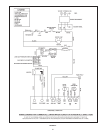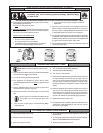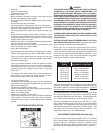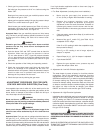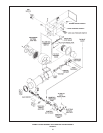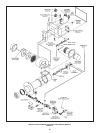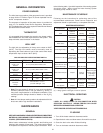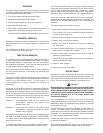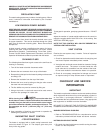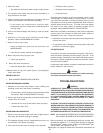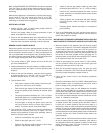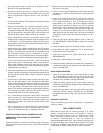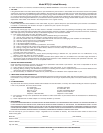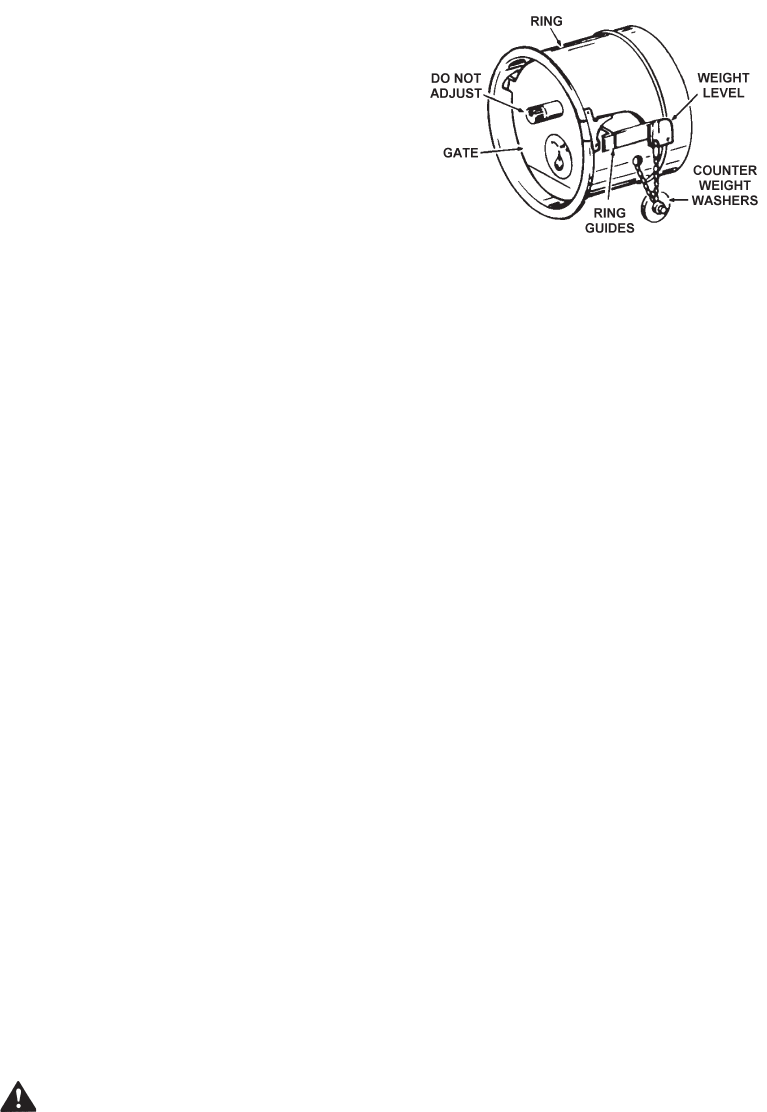
29
ABOVE ALL, DO NOT PLUG THE TEMPERATURE AND PRESSURE
RELIEF VALVE. THIS IS NOT A SOLUTION AND CAN CREATE A
HAZARDOUS SITUATION.
CIRCULATING PUMP
The water heating system may include a circulating pump. Where
used, it should be lubricated as directed by the circulator
manufacturer.
LOW EMISSION POWER BURNER
KEEP THE AREA AROUND THE BURNER CLEAR AND FREE OF
COMBUSTIBLE MATERIALS, GASOLINE OR OTHER FLAMMABLE
LIQUIDS OR VAPORS. DO NOT OBSTRUCT BURNER AIR
OPENINGS OR VENTILATION GRILLES FOR COMBUSTION AIR.
REMOVE LINT ACCUMULATION FROM AIR INTAKE GRILL.
The main burner flame should be visually checked once a year
for proper operation. This can be observed through the “peep
sight” port on the burner mounting plate. Burner flame should
be kept blue.
At least annually, contact a qualified service agency for burner
cleaning and other routine maintenance. For burner related
Maintenance Schedule, Troubleshooting, Flame Rod, Ignitor,
Thermal Cut-Off Switch Replacement Procedures, use burner
Operation & Maintenance Manual provided with this heater.
CLEANING FLUES
The following describes how to gain access to the tank flues for
cleaning if necessary.
1. Turn off the heater electrical disconnect switch.
2. Remove the vent connector from on top of the heater.
3. Remove the jacket top from the heater by taking out the screws
and lifting it off.
4. Remove the insulation from the top of the heater.
5. Remove the inner cover by taking out the pipe collar around
the water inlet and outlet nipple.
6. The flue baffles may now be removed by lifting out.
7. Using a wire brush, a nylon brush must not be used, remove
soot from flue passages in heater tank.
CAUTION
While cleaning tank flue passages, care must be taken that
brush does not come in contact with neither the combustion
chamber lining nor the baffle or funnel which are an integral
part of the combustion chamber, as damage could occur. The
flue passages are 48-1/2” (1,232 mm) long x 3” (76.2 mm)
diameter.
8. Upon completion of cleaning, return heater to operation by
following this procedure in reverse.
BAROMETRIC DRAFT CONTROL
- FOR BTP MODELS
The heater is equipped with a double acting barometric draft
control as shown in Figure 15. The damper gate must pivot
freely in the ring guides.
FIGURE 15
To test gate for operation, gently tap gate and observe. DO NOT
OIL.
Adjust the number of counter-weight washers on the control to
maintain a negative draft of 0.02” to 0.04” w.c. in the venting. See
VERTICAL VENTING, page 8.
NOTE THAT THIS CONTROL WILL ONLY BE PRESENT IN A
VERTICAL VENT INSTALLATION.
VENT SYSTEM
Examine the vent system every 3 months. Points of inspection
are as follows:
1. Check for obstructions and/or deterioration of vent piping and
vent hood. Replace immediately where needed.
2. Vent pipe and vent hood screen should be cleaned of foreign
material and soot. The screen is located inside the vent
hood outlet and is accessible from the outside of the hood.
Do not reach inside the vent when the heater is in operation.
3. Check all vent system connections for leakage and re-seal
as required using Hi Temp Silicone sealer or equivalent.
CHECKLIST AND SERVICE
INFORMATION
IMPORTANT
The installer may be able to observe and correct certain problems
which might arise when the unit is put into operation or when it is
re-fired after a prolonged shutdown. HOWEVER, it is
recommended that only qualified servicemen, using appropriate
test equipment, be allowed to service the heater.
BE SURE TO TURN OFF THE ELECTRICITY WHENEVER
POSSIBLE OR APPROPRIATE WHILE CHECKING EQUIPMENT.
BURNER OPERATIONAL PROBLEMS
1. Refer to TROUBLESHOOTING for comprehensive service
information provided with both heater and burner manuals.
NOT ENOUGH OR NO HOT WATER
1. Be certain the electrical disconnect switch serving the water
heater is in the ON position



